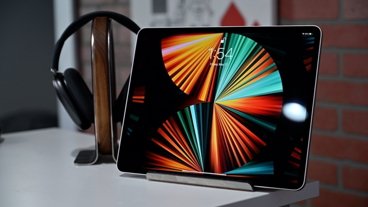Arguing the relevance of copying to patent infringement
The relevance of copying to actual patent infringement has become central to the intractable jury instruction disputes that "disappointed" Judge Lucy Koh and resulted in an order that both teams meet in person to hammer out.
"Patent law is a strict liability regime," notes a report by FOSS Patents Florian Mueller. "Even with a 100% independent creation, you can be liable for infringement — and even with 100% intentional copying, you are not liable for anything if there is no valid patent within the scope of which your copied product falls."
While copying itself is not illegal, Apple has argued that the issue of copying (which it has strategically focused up on in the case, and which Samsung has sought to distract away from while focusing upon the accused lack of merit in Apple's patents instead) is relevant to proving other claims in its infringement case with Samsung beyond simple "non-obviousness."
Apple states that its evidence of Samsung's copying is relevant to the questions of "willful infringement," "trade dress secondary meaning," (copying of packaging and other distinctive elements to steal the goodwill and reputation of the original) and "indirect infringement" (contributing toward the infringement by third parties, or benefitting from their infringement).
Not saying we copied, but even so it's okay
Samsung has walked the line between refusing to admit that it has copied, while also attempting to argue that copying itself has no direct relevance to the issue of actual patent infringement nor patent validity. It seeks to have the jury told:
"You have heard allegations by Apple that certain of its designs and patents have been copied. Regardless of whether you as the jury accept this testimony, you may not consider it in deciding whether any patents in this case have been infringed. Copying is not an element of patent infringement."
Samsung also seeks to tell the jury:
"Evidence of copying, if established, is only relevant as one of several considerations you will need to account for in deciding whether a patent is invalid because it was an obvious design."
Samsung argued that an earlier decision in the design patent case L.A. Gear, Inc. v. Thom McAn Shoe Co supports its position, claiming that the decision "clearly says that copying is 'an issue not relevant to patent infringement.'"
Mueller, however, said that "Samsung uses a disingenuous out-of-context quote," noting that the full context of the decision in that case actually support's Apple's arguments instead:
"Melville presented no evidence to counteract the evidence of copying of the patented design. Indeed, Melville admitted copying, offering as its only justification the proposition that copying is prevalent in the fashion industry, an issue not relevant to patent infringement."
But everybody follows Apple
Apple also took issue with another proposal by Samsung, which it said "goes far beyond the law to excuse Samsung's copying and eliminate the relevance of this factor." In that disputed jury instruction, Samsung states,
"Did others copy the claimed design? Where parties have a practice of marketing very similar products, however, evidence of copying is not a strong indicator of non-obviousness, but rather a measure of the extent to which parties in the market typically follow developments by their competitors, whether patented or not."
Apple's success in obtaining a preliminary injunction against the Galaxy Tab prior to the case, which Judge Koh described at one point as "virtually identical" to the iPad, makes it clear that the Apple v. Samsung case will decide, however it plays out, to what extent companies will be willing to copy others in the future.
 Daniel Eran Dilger
Daniel Eran Dilger






-m.jpg)






 Malcolm Owen
Malcolm Owen
 Amber Neely
Amber Neely


 Christine McKee
Christine McKee

 Chip Loder
Chip Loder
 Marko Zivkovic
Marko Zivkovic









21 Comments
Well, here's to the imovators, whoever they may be.
Can someone please deconstruct this in English?
/rolleyes
Copying versus infringement? If someone copies a patent and there isn't enough difference to make it a NEW patent, that's infringement, IMO. Many companies copy another patented design, but they change it enough to warrant a NEW patent. I've seen that happen quite often, but copying something and the average person thinks that is LOOKS the same or ACTS the same as an actual patent? That's infringement.
I was confused with several products from Samsung and HTC that at first glance it was COMPLETELY obvious they are trying to make people think they got an iPad or an iPhone, when it really wasn't. Personally, I think that is wrong. Obviously, to me, since I have a lot more experience in the industry to spot them apart, many people with much less experience would have a tough time.
Obviously, a screen size is not patentable. But the shape of the bezel and where the buttons are located, how the icons look, act, how they are arranged on the screen when you show a screen shot? Some things take the look and feel just a little too far.
WIndows, obviously was trying to copy Apple's GUI in many ways, but they changed the location of various aspects of the design to get away with it. Personally, when Apple sued Microsoft, I would have awarded them something because there were attributes that were a little too similar and Apple's design was different than the original XEROX GUI and Apple had hired the original designed of the GUI interface, so they had him further develop the original design to become more commercially usable.
C'mon Ai - hop to it. The other sites have beat you to some big news of the day:
Microsoft has licensed the very same design patents from Apple that Apple offered to Samsung. Oh, I'm sure the haters will claim MS and Apple are ganging up on Google/Samsung or come up with other "conspiracy theories". There is an "anticloning" agreement in place so MS can't make outright copies of Apple devices, but that they can still incrorporate some elements.
The bottom line: MS paid Apple (or maybe cross-licensed) to use their IP which is basically saying MS believes Apple's IP is valid.
Take the Gucci cases. Many are similar, but not EXACT, but some THINK they are a Gucci, but some know they are a knockoff. But people that mfg and sell Gucci knockoffs, can actually get arrested for that infringement, even though they don't sell them as a Gucci, they are still knockoffs.